September 29, 2020
Giovanni Botten is an M.D./Ph.D. student in the Medical Scientist Training Program at UT Southwestern. As part of the Xu lab in CRI, he is studying how large-scale changes in DNA can lead to diseases like leukemia to improve our understanding of gene regulation and discover new targeted therapies.
What are you researching?
I am currently studying how large-scale changes in our chromosomes, known as structural variants (SVs), can alter how genes are turned on or off in blood cells and lead to leukemia. These modifications to DNA are known as epigenetic changes. Traditional analysis of epigenetic changes is often focused on protein-coding genes, which comprise less than two percent of our entire genome. However, in certain leukemias, many recurrent SVs do not mutate protein-coding genes and instead rearrange the noncoding elements of our genomes. Previous research in our lab showed that these noncoding regions have the ability to rewire how genes are expressed during blood cancer development, but we do not fully understand exactly how they contribute to cancer pathophysiology.
The goal of my research is to couple bioinformatics methods with traditional cell culture and animal models to understand how recurrent leukemia-associated SVs disrupt normal epigenetic activities to promote cancer development. I am hopeful that this work will garner new insights into gene regulation and lead to the development of targeted therapeutic strategies.
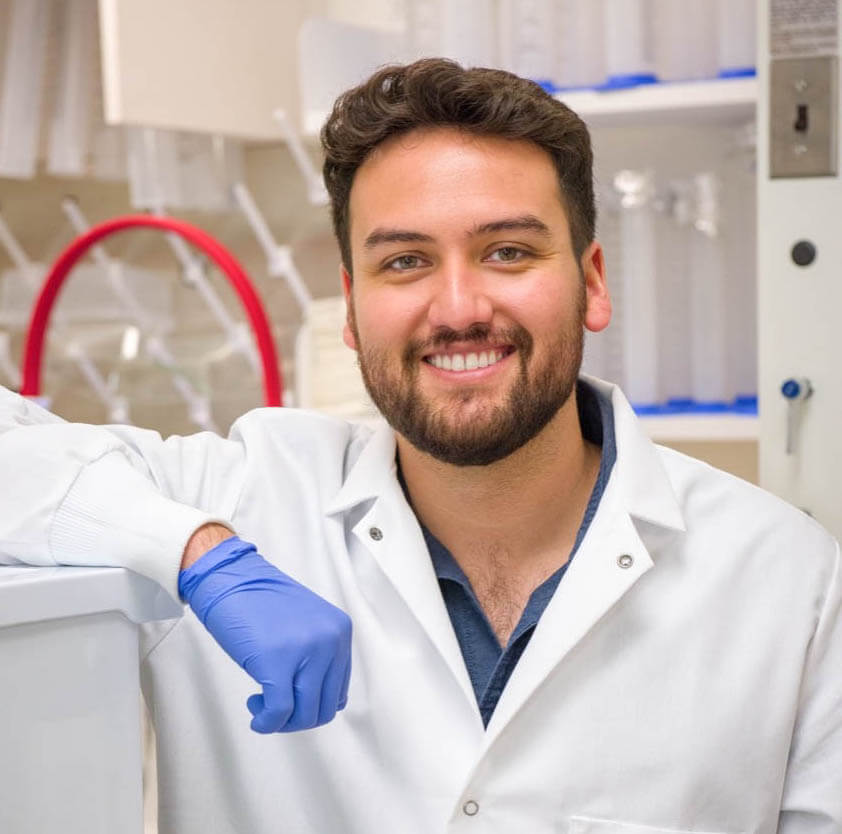
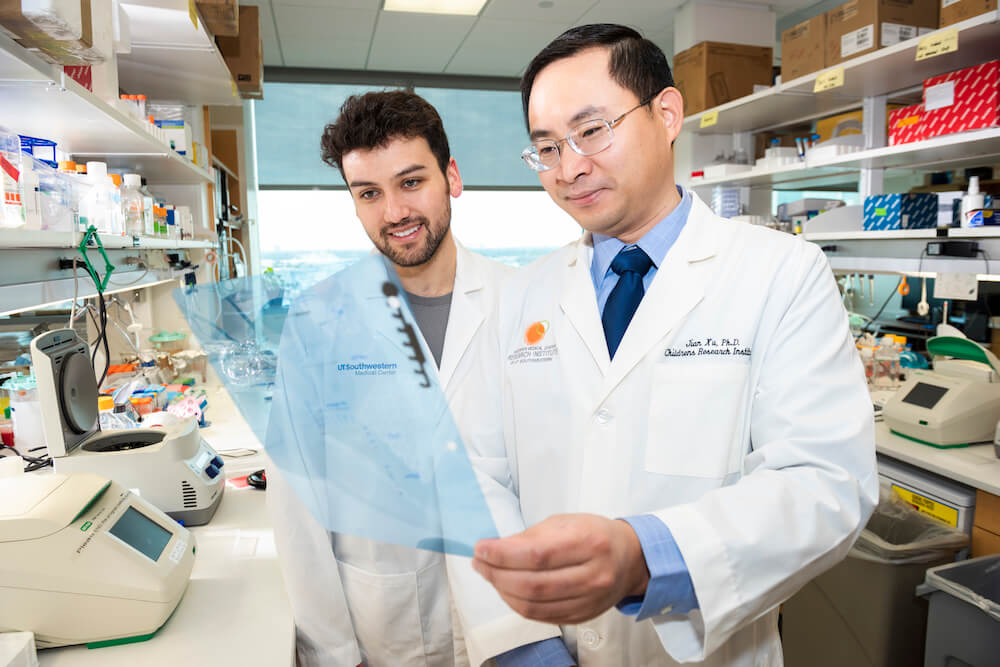
How did you end up in CRI?
Before moving to Dallas, I worked as a technician in the lab of Stephen Smale at UCLA. My work there focused on gene regulation during innate immune responses. From this experience, I knew I wanted my graduate work to involve epigenetic mechanisms of gene regulation. When researching potential labs to join, I identified Dr. Jian Xu’s lab. Once I discovered he was a former graduate student from the Smale lab, I was determined to rotate in his lab.
During my summer rotation, it was evident that several aspects of Dr. Xu’s approach to science were influenced by his former mentor, and I felt an instant connection. I knew that I would benefit tremendously from Dr. Xu’s mentorship, so I joined his lab as a graduate student in 2018. But most importantly, it was during this rotation that I realized that being a member of the CRI community would have an everlasting impact on my future. The passion for research, emphasis on scientific rigor, and breadth of intellectual and technical resources CRI offers its trainees is impressive. It’s an exemplary academic institute that is helping me develop the knowledge and skills to become an independent scientist.
What would you be if you were not a scientist?
I would most likely have a career in the culinary arts, probably as a gastronomist. Food impacts nearly all aspects of our society, including the environment, economy, and human wellness and health. Food also serves as a bridge to connect people from all cultural backgrounds. I thoroughly enjoy cooking at home and learning new styles and techniques to create a tasty plate of food. In some ways, cooking is similar to conducting laboratory experiments. Protocols containing specific procedures with different reagents are followed, with the end results being either fulfilling or somewhat disappointing experiences.
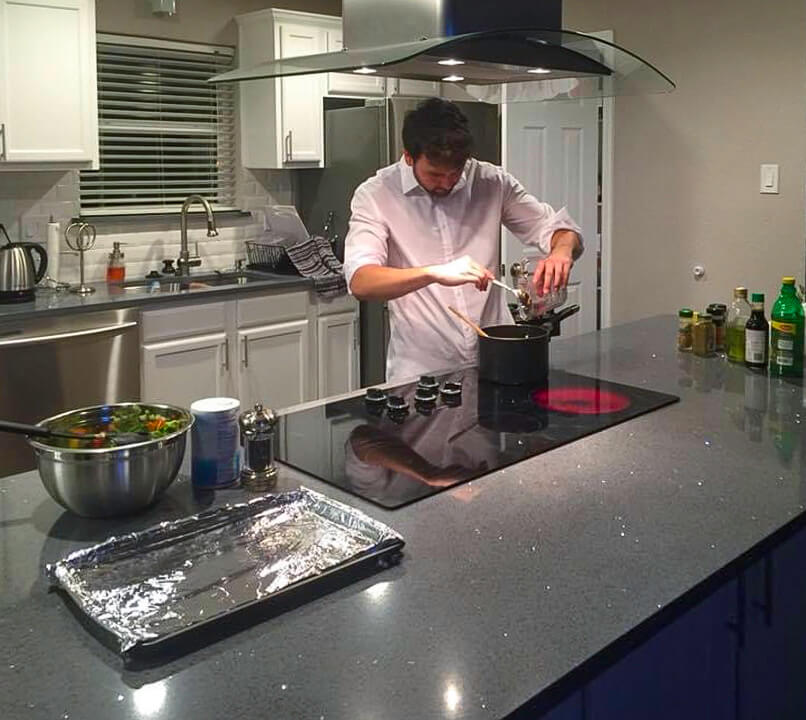
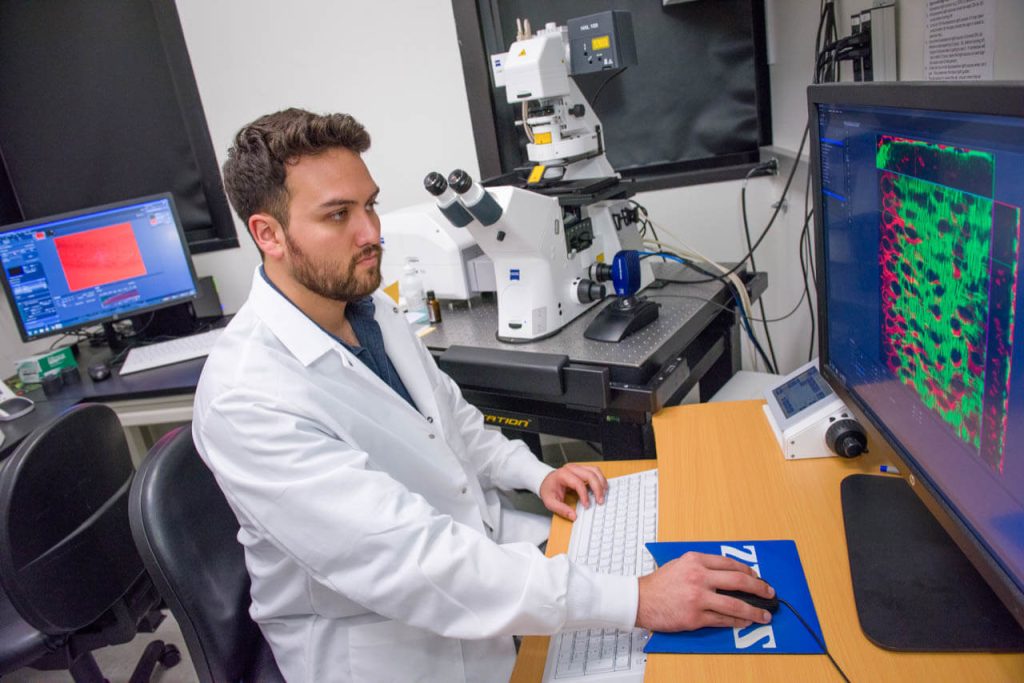
What about being a researcher is different than people might expect?
As a researcher, we confront failure on a regular basis. Our experiments fail just as often, if not more so, than they succeed. Failure is not something we tend to discuss as a community, but it is such an important component of research. When experiments do not go as expected, we are forced to re-evaluate all parameters and assumptions to resolve the underlying issues. During this process of troubleshooting, we actually learn a lot and may even identify unexplored avenues to further investigate. As my current and previous mentors have stated many times, “Ninety percent of what we do in a lab is troubleshooting.”
What do you like to do when you’re not in the lab?
I love playing tennis. Tennis gives me a reason to get outdoors and stay active. After a tennis match, my body is effectively relieved of all stress and tension. Since tennis requires more than one person, it is also an effective outlet for socializing with my friends throughout CRI and the UT Southwestern scientific community. I also have two dogs at home, and I enjoy taking them to the local dog parks around Dallas.
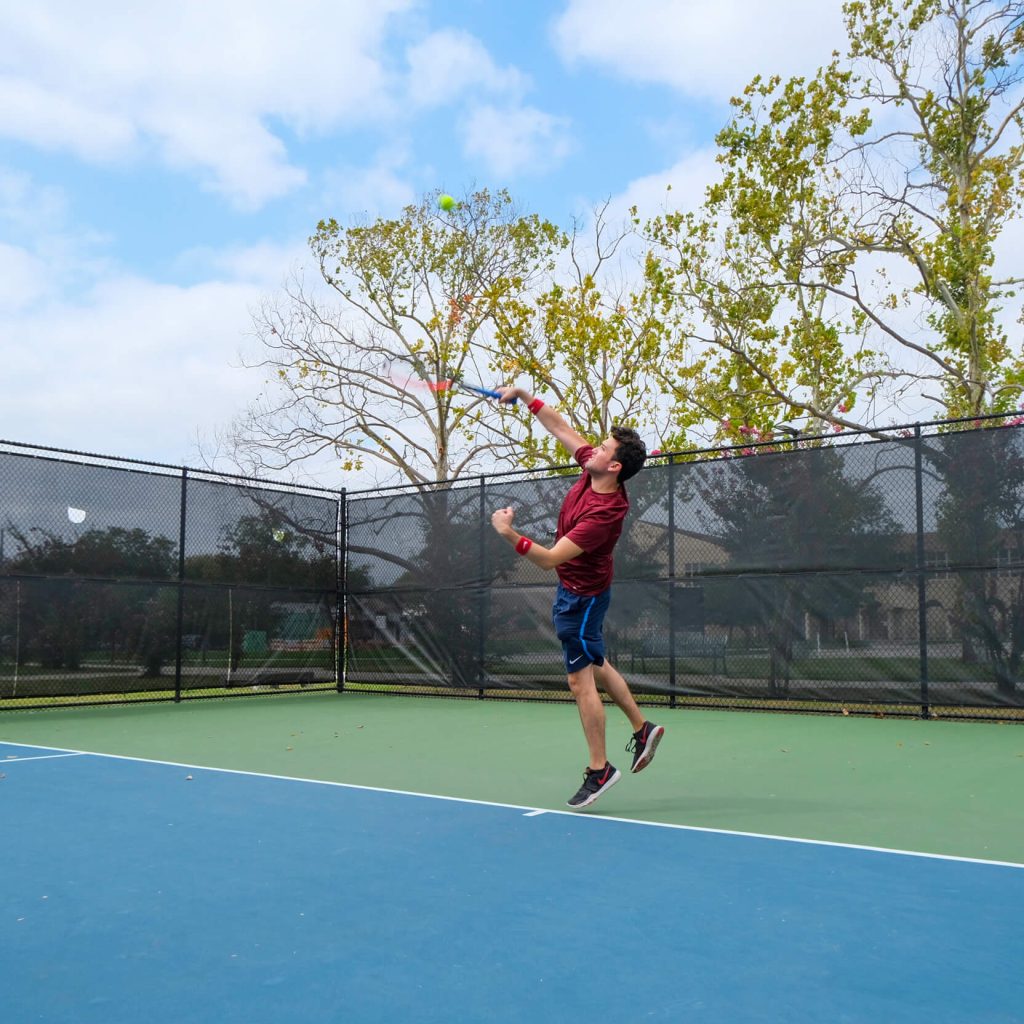
© 2026 Children’s Research Institute Dallas Texas | Privacy | Site Policies